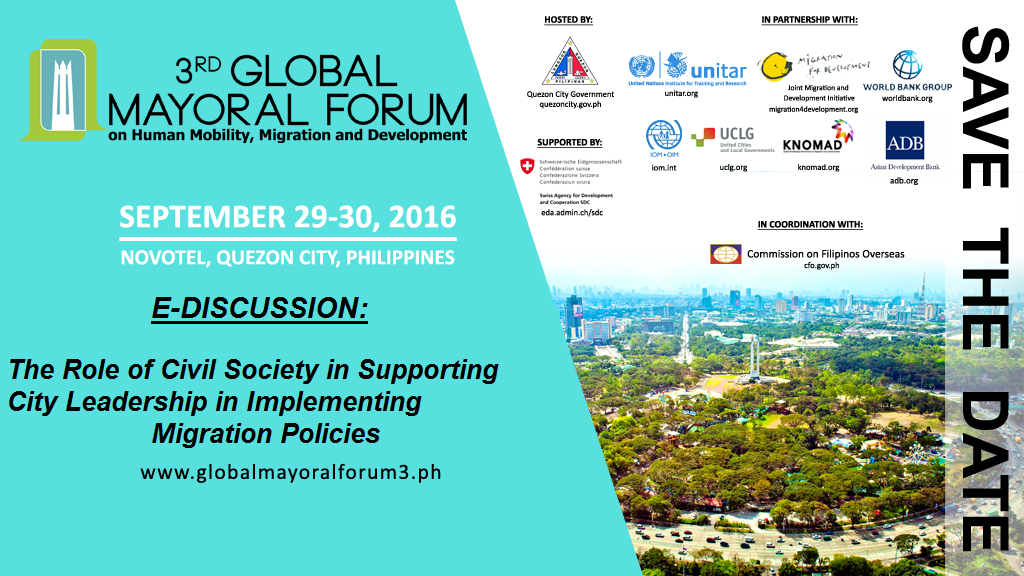5 August 2016

Led by the Global Coalition on Migration (GCM), KNOMAD of the World Bank, UNITAR and the JMDI within the framework of the upcoming Third global Mayoral Forum on Mobility, Migration and Development, this consultation will serve to bring the voices and experiences of civil society to the upcoming Third Global Mayoral Forum on Mobility, Migration and Development to be hosted by Quezon City, Philippines from 29-30th September, 2016.
Civil society actors are invited to share their expertise by responding to all or any of the following questions through the website discussion platform, on Facebook, by email or by phone, by 16 September.
Questions for discussion
1. How can civil society support cities to ensure the inclusion and the protection of vulnerable migrants and refugees for enhanced resilience and development? What good practices and lessons learned exist?
2. What is the role of civil society in supporting local and regional authorities to reach out and engage with diaspora? For example, in order to foster their support in integration, social protection, promoting labour rights and fostering knowledge transfer, entrepreneurship and investment for local development? Please provide examples.
3. How can civil society and cities work together to combat xenophobia, violence and ensure social cohesion? What good practices and lessons learned exist? Please provide examples.
4. Both cities and civil society actors tend to be side-lined from national and international policy- making pertaining to migration and refugee protection, despite the fact that such policies often have an impact at the local level. This can be due to a lack of support, voice and consultation at national level, as well as a lack competencies, means and/or political will. What obstacles to collaboration have you encountered through your work? How can cities and civil society work together to overcome these? Please provide examples.
5. What are the key success factors to ensuring a trusting and functional multi-stakeholder partnership among civil society actors and cities in their efforts to work together to harness the development potential of migration? What obstacles can hinder such partnerships? How can these be overcome? Please provide examples.
6. These past few years, we have numerous incidences of countries experiencing conflict or natural disasters where migrants living, working, studying, traveling or transiting in these countries have been disproportionately affected. What is the role of civil society in preparing for and responding to the needs of migrants in countries experiencing crises. Give examples of how civil society helped in saving lives, protecting migrants’ rights and dignity and alleviating their suffering especially at the height of these crises.
If you experience any technical difficulties or need any further information, you can contact JMDI on jmdi.pmu@undp.org.
For more information on this initiative, see the JMDI website.